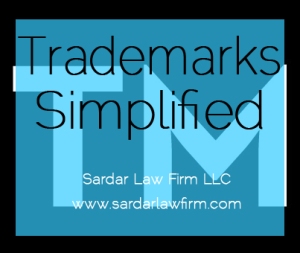When you start tweeting as part of your corporate position, the lines between what is a personal Twitter account and one made for business purposes is blurred – especially in the world of startups, new ventures, and media companies. What happens when you leave the company? Who has ownership rights over the Twitter account – the company, or the employee?
Recently, PhoneDog Media LLC sued former employee Noah Kravitz over exactly this. Noah Kravitz, while employed by PhoneDog, tweeted under the name “Phonedog_Noah” and upon his departure from the company, Kravitz was allegedly given the rights to keep the Twitter account in exchange for occasional tweets about PhoneDog. However, Kravitz switched his Twitter handle from “PhoneDog_Noah” to “NoahKravitz” while keep the followers and the good will from the initial Twitter handle.
Under the new Twitter handle, Kravitz increased his Twitter followers from 17,000 to 20,000. Eight months later, PhoneDog sued Kravitz claiming that those Twitter followers were in fact a proprietary client list, claiming damages of $2.50 per month, per follower – totaling to about $340,000.00 USD.
The question, of course, is whether Twitter followers are in fact proprietary or if they can be considered company property. This leads to the question: who owns a Twitter account?
Many businesses utilize social media to increase brand awareness, and many employees – especially rainmakers – utilize their personal Twitter accounts to help generate business for their employer. Since Twitter is not a paid service, the lines are blurred as to who owns the account, especially when the Tweets are related to building business in some manner.
Regardless of the outcome of this case, companies should take steps to develop a written Twitter use policy, establishing the use of Twitter handles for company use.
A few questions employers should pose internally regarding Twitter use:
(1) If an employee tweets during the work day as part of his/her job description, is that Twitter handle now owned by the company?
(2) Was the Twitter handle created by the employee before joining the company, or after joining the company, and for what purpose?
(3) Were any company resources spent/utilized in the creation and/or use of the Twitter handle?
(4) Can employers restrict/monitor what the employee Tweets about?
(5) Was this a personal Twitter handle that the employee was using for business purposes at the request of the company – and if so, how much of that really “belongs” to the company as opposed to the employee?
(6) Is this something that should discussed and incorporated into an agreement at the outset, or upon the separation of the employee from the company?
For employees, the question comes down to this: how to ensure that their Twitter handle is separate from their employment. Many journalists face this problem, as they do list in their Twitter accounts where they work, and they also post articles they have written. While their accounts are personal, there is a clear business crossover. For some, they put a clear disclaimer in their profile that this is not a company account and is personal; for others, the lines are blurred. It remains to be seen how and if a disclaimer would be valid in these situations.
The main thing to try and avoid is a “he-said-she-said” battle in the court systems; from both the employer and employee sides.
Originally published in Corporate Counsel NY.
by: Sheheryar Sardar, Esq. & Benish Shah, Esq., Sardar Law Firm LLC
For more information on social media law, contact: Sardar Law Firm at sardar@sardarlawfirm.com.
Follow Sardar Law Firm on Twitter @CorpCounselNYC
Follow Social Media Legal Twitter @socialmedia_law




